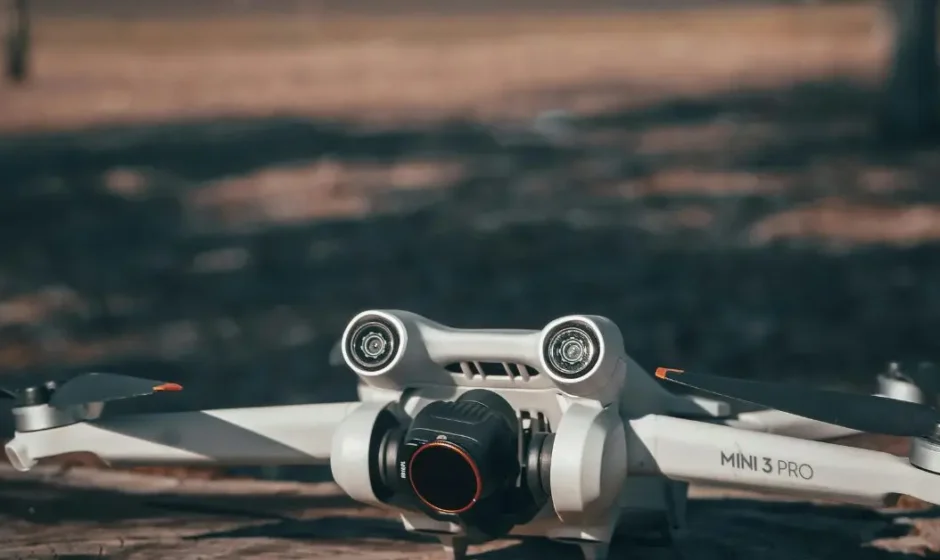In recent years, drone technology has advanced rapidly, allowing even compact drones to perform tasks that were once reserved for high-end, professional-grade equipment. DJI’s Mini series, including models like the Mini 2, Mini SE, and Mini 3 Pro, exemplifies this trend by offering lightweight, portable drones with powerful features. While these drones are often marketed towards hobbyists and beginners, their capabilities raise the question: can DJI Mini drones be used for professional work? The answer depends on the specific requirements of the task, but these compact marvels can indeed hold their own in various professional scenarios. Here’s a detailed analysis of how and when DJI Mini drones can be used professionally.
Key Features of DJI Mini Drones
Before delving into their professional potential, it’s essential to understand the key features that make DJI Mini drones stand out:
- Portability and Weight DJI Mini types of drones weigh under 250 grams, which not only makes them easy to carry but also exempts them from certain regulatory requirements in many countries. Their lightweight design allows for quick deployment, making them ideal for time-sensitive tasks.
- High-Quality Cameras Despite their small size, DJI Mini drones are equipped with high-resolution cameras capable of capturing 2.7K to 4K video and 12MP to 48MP photos. The Mini 3 Pro, for example, boasts a 1/1.3-inch sensor, dual native ISO, and HDR capabilities, delivering impressive image quality in various lighting conditions.
- Ease of Use These drones are designed with user-friendliness in mind, featuring intuitive controls, intelligent flight modes, and robust stability even in moderate winds. This accessibility ensures that professionals can focus on their work rather than mastering complex controls.
- Affordability Compared to larger professional drones, DJI Mini models are more budget-friendly, making them an attractive option for startups, freelancers, and small businesses.
- Long Flight Time With flight times ranging from 30 to 38 minutes, DJI Mini drones can cover significant ground, reducing downtime and enhancing productivity.
Professional Applications of DJI Mini Drones
1. Photography and Videography
Event Coverage: DJI Mini drones are capable of capturing stunning aerial shots for events such as weddings, festivals, and corporate gatherings. Their compact size allows them to operate discreetly, avoiding disruptions.
Real Estate: Real estate professionals can use DJI Mini drones to create captivating property listings. High-quality aerial photos and videos provide prospective buyers with a comprehensive view of the property and its surroundings.
Content Creation: From travel vlogs to social media campaigns, DJI Mini drones are popular among content creators. Their portability and image quality make them ideal for producing visually appealing footage on the go.
2. Surveying and Mapping
While not as advanced as larger drones equipped with LiDAR or RTK systems, DJI Mini drones can still be used for basic surveying and mapping tasks. They’re particularly useful for:
- Land Inspections: Assessing small to medium-sized plots of land for agricultural or construction purposes.
- Progress Monitoring: Documenting the progress of construction projects or environmental changes over time.
3. Search and Rescue (SAR)
The compact size and maneuverability of DJI Mini drones make them suitable for quick reconnaissance in search and rescue operations. They can:
- Access tight spaces or remote areas.
- Provide real-time video feeds to assist in locating missing persons.
- Deliver lightweight payloads such as emergency supplies in specific situations.
4. Inspection Tasks
DJI Mini drones can perform visual inspections of infrastructure like rooftops, cell towers, and solar panels. Although their lack of zoom capabilities may limit them in certain scenarios, their portability and cost-effectiveness make them a practical choice for routine checks.
5. Educational and Training Purposes
For training new drone pilots or teaching students about drone technology, DJI Mini drones are an excellent starting point. Their affordability reduces the risk associated with potential crashes, while their advanced features provide a hands-on learning experience.
Advantages of Using DJI Mini Drones Professionally
- Regulatory Benefits Weighing under 250 grams, DJI Mini drones are often exempt from stringent regulations in many jurisdictions. This reduces administrative burdens and allows for greater operational flexibility.
- Stealth and Accessibility Their compact size enables them to operate in environments where larger drones might be obtrusive or impractical, such as indoor spaces or densely populated areas.
- Cost-Effectiveness For professionals on a budget, DJI Mini drones provide excellent value. They offer a balance of affordability and performance, making advanced drone technology accessible to a wider audience.
- Versatility These drones can be adapted for a wide range of tasks, from capturing cinematic footage to conducting inspections, making them a versatile tool for various industries.
Limitations to Consider
Despite their impressive capabilities, DJI Mini drones have limitations that professionals need to consider:
- Wind Resistance Due to their lightweight design, DJI Mini drones may struggle in high-wind conditions, affecting flight stability and image quality.
- Limited Payload Capacity The compact size of these drones limits their ability to carry additional equipment such as thermal cameras or advanced sensors, which are often required for specialized tasks.
- Camera Limitations While the camera quality is excellent for most applications, it may not match the performance of high-end drones equipped with larger sensors or optical zoom capabilities.
- Range and Signal Strength The transmission range and signal strength, while adequate for most use cases, may not be sufficient for extensive operations in remote areas.
- Battery Life Although flight times are impressive, professionals working on extensive projects may require additional batteries to maintain productivity.
Tips for Using DJI Mini Drones Professionally
- Plan Your Missions: Carefully plan your flights to maximize efficiency and capture the required data or footage within the drone’s operational limits.
- Invest in Accessories: Extra batteries, propeller guards, and ND filters can enhance the performance and versatility of your DJI Mini drone.
- Understand Local Regulations: Even though these drones may be exempt from certain regulations, always ensure compliance with local laws and obtain necessary permissions for professional work.
- Leverage Intelligent Features: Use intelligent flight modes like ActiveTrack, Point of Interest, and QuickShots to capture professional-grade footage with minimal effort.
- Practice and Test: Familiarize yourself with the drone’s capabilities and limitations through regular practice and test flights before taking on professional assignments.
Conclusion
DJI Mini drones have revolutionized the perception of compact drones, proving that size does not necessarily dictate capability. While they may not replace high-end drones for highly specialized tasks, their portability, affordability, and advanced features make them a viable option for many professional applications. By understanding their strengths and limitations, professionals can harness the full potential of DJI Mini drones to deliver impressive results in fields ranging from photography and videography to inspections and education. Whether you’re a freelance content creator or a small business owner, these drones offer a practical and cost-effective entry point into the world of professional drone operations.




Can I Use the DJI RC Controller with Mini Drones? – Easy Way Idea 23 Dec 2024
[…] DJI RC Controller is designed to work seamlessly with specific DJI drone models. Compatibility depends on the firmware, drone model, […]